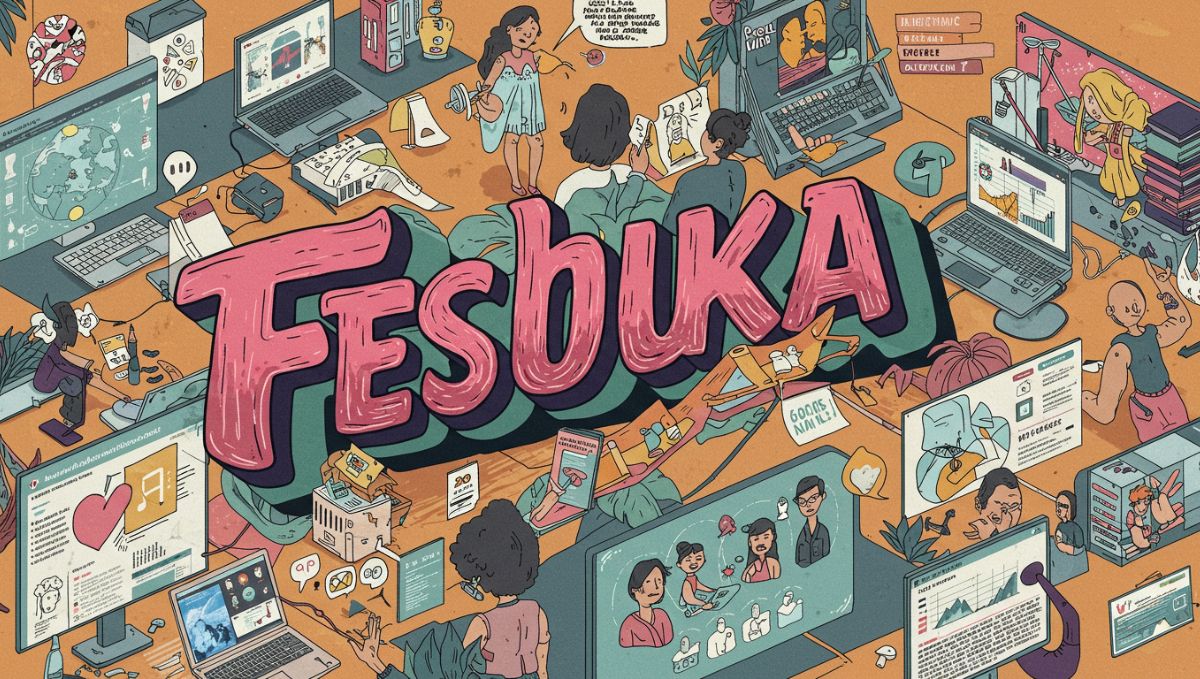The term fesbuka has been increasingly used across conversations, online platforms, and cultural discussions. At first, it may sound unfamiliar, yet it closely connects to one of the most influential digital platforms in modern society. Fesbuka reflects how people adapt global technology into local language, reshaping it to suit their identity and daily life.
The Linguistic Background of Fesbuka
Fesbuka is a localized version of the word “Facebook,” one of the world’s most popular social networks. In many cultures, people often reshape foreign words into simpler, phonetic versions that match their language and speech habits. Fesbuka is one such adaptation. This illustrates how global terms evolve to feel more relatable and accessible for local communities.
Fesbuka as a Cultural Expression
Language is more than communication—it’s also identity. By using fesbuka, communities take ownership of a global platform and express it in their own way. This cultural adaptation makes the word more than just a translation. It becomes a reflection of how people blend digital tools with their cultural voice.
The Popularity of Fesbuka in Daily Life
Across many regions, fesbuka is more than a word—it is a daily activity. People say “fesbuka” when referring to checking updates, connecting with friends, or sharing information online. This shows how deeply the platform has integrated into modern social behavior. The localized name makes it sound more casual, friendly, and familiar in everyday conversation.
Why Fesbuka Matters in Communication
One of the reasons fes-buka matters is its role in shaping modern communication. It allows people to connect instantly across distances, share opinions, and build communities. The word itself also represents the blending of technology with culture, highlighting the adaptability of human communication in a digital world.
Fesbuka in Social Interaction
Through fes-buka, people build friendships, reconnect with lost contacts, and join interest-based groups. It has become a place for both personal and professional networking. The localized name further personalizes the experience, turning a global tool into something that feels closer to home.
Fes-buka as a Platform for Expression
Fes-buka is more than networking—it is also a stage for self-expression. Users share photos, videos, thoughts, and cultural practices. For many, it is a digital diary where life events are documented and celebrated. This level of openness shows how the platform has transformed the way people present themselves to the world.
Business and Marketing Opportunities on Fes-buka
Companies and entrepreneurs increasingly see fes-buka as a valuable tool for growth. Local businesses use it to advertise products, engage customers, and build brand identity. The localized word helps bring the platform closer to communities, making it easier for small businesses to relate to their audience.
Educational Role of Fes-buka
Surprisingly, fes-buka has also taken on an educational role. Teachers, institutions, and students use it for sharing resources, organizing study groups, and spreading knowledge. This shows how the platform is not limited to entertainment but can also support learning and development.
Fesbuka and Social Movements
Another important dimension of fes-buka is its role in activism. Communities and organizations use it to raise awareness about issues, promote change, and mobilize people for causes. The localized form of the word shows how activism adapts to cultural contexts, making the platform a voice for both local and global concerns.
Psychological and Social Impact of Fesbuka
While fes-buka provides connection, it also comes with challenges. The constant flow of updates can create pressure, and comparisons on social media can affect self-esteem. On the other hand, it fosters a sense of belonging and reduces loneliness. This dual impact highlights the powerful role of fesbuka in shaping human psychology.
Criticism and Challenges of Fesbuka
Despite its popularity, fesbuka faces criticism for issues like misinformation, privacy concerns, and overuse. Communities are learning to balance its benefits with responsible use. The localized adaptation of the word does not erase these challenges but makes discussions around them more relevant in cultural contexts.
The Future of Fesbuka
Looking ahead, fesbuka will continue evolving. As digital tools advance, its role in communication, business, and culture is likely to expand further. The word itself may gain even deeper roots in local languages, showing how global technology becomes part of everyday culture.
Conclusion
The journey of fesbuka demonstrates how global platforms transform when adopted by local communities. More than just a localized word, it reflects culture, identity, and human connection. Its role in daily life—from friendships to business to activism—proves its lasting influence. Fesbuka is a symbol of how language and technology blend to shape modern society.
